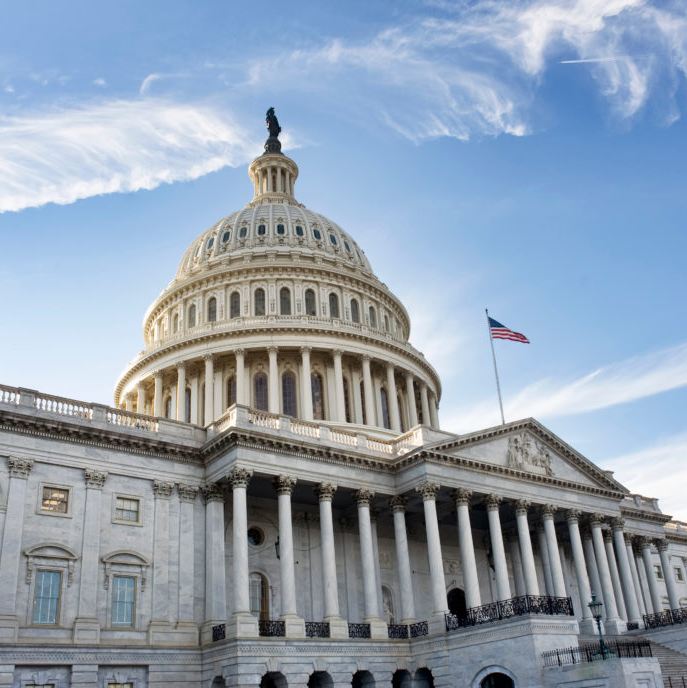An Additional $52 Million for U.S. Treasury Will Help Aid Sanctions Enforcement
Washington, DC – The FACT Coalition applauds the inclusion of $52 million in emergency funds for the U.S. Treasury Department as part of the appropriations package passed today by the U.S. Senate. Today’s vote sends the larger $40 billion Ukraine aid package to the President’s desk to sign into law, and will assist Ukraine in the face of Russia’s illegal invasion.
“Combatting Russian aggression includes engaging on the financial battlefield. This bipartisan approval of emergency funds will help fill the coffers of our nation’s financial crime fighters,” said Ian Gary, FACT’s executive director. “This aid package recognizes the vital role the Treasury Department plays in national security and responds to civil society’s calls for action. The new funds will allow the Treasury to protect the U.S. financial system from exploitation by Russian oligarchs, kleptocrats, and other criminals on two fronts: both in coordinating internationally to enforce sanctions and simultaneously in implementing reforms needed to close U.S. markets to bad actors.”
Last Tuesday, Senator Van Hollen (D-MD), chairman of the relevant appropriations subcommittee, stated publicly that a portion of these funds will support the Financial Crimes Enforcement Network (FinCEN). FinCEN is the bureau of the U.S. Treasury responsible for preventing abuse of the U.S. financial system for financial crime and corruption, and also for providing key financial data analysis used by U.S. national security officials to implement existing sanctions.
“To be able to freeze and seize Russian oligarch assets, you need to know who owns them,” said Mr. Gary. “U.S. officials need modern tools – like those enacted in the bipartisan Corporate Transparency Act, which will pull back the veil on the owners of anonymous U.S. entities – to be truly effective in cracking down on Putin’s cronies. That’s why FinCEN needs additional funds to deliver timely, effective rules putting those tools in place.”
In his April testimony to the House Financial Services Committee, FinCEN’s Acting Director Himamauli Das explained how underfunded his bureau is, stating, “Our team is incredibly talented, but they’re incredibly small as well, and they’re just outmatched to the challenge — not in competence but in terms of resources alone.”
For FY2022, enacted FinCEN appropriations fell approximately $30 million short of the President’s discretionary request. While FinCEN received $19 million as part of the first Ukraine aid package passed by Congress, these funds were intended as a short-term surge to boost FinCEN’s critical role in supporting international sanction efforts. If used appropriately, the funds approved today could continue to further that mission and help to offset repeated underfunding of the bureau. This would empower FinCEN to advance crucial structural reforms that require increases in staffing and investments in essential technology infrastructure – like the implementation of the Corporate Transparency Act and new rulemakings to mitigate money laundering risks through U.S. real estate and U.S. private investment markets – improving the effectiveness of sanctions enforcement in the future.
Importantly, carrying out key structural reforms will also require consistent, adequate funding going forward. Last week, Senators Whitehouse (D-RI) and Grassley (R-IA) led a letter with 21 bipartisan colleagues urging congressional appropriators to increase funding to FinCEN. Representative Spanberger (D-VA) led a similar bipartisan letter with 27 colleagues in the House just two weeks earlier.
In recognition of FinCEN’s increasingly important mandate, the Biden Administration requested a 30 percent increase for FinCEN’s FY2023 discretionary funds above previous enacted levels, raising the total amount to $210.3 million. Senate and House appropriators are in the midst of reviewing requests and drafting packages, likely to be announced this summer.
Notes to the Editor:
- Text of the Ukraine supplemental passed by Congress.
- Bipartisan Senate letter led by Sens. Whitehouse (D-RI) and Grassley (R-IA) urging increased FinCEN funding.
- Bipartisan House letter led by Rep. Spanberger (D-VA) urging increased FinCEN funding.
- President Biden’s Budget Request for FY2023 (p. 98).
- Congress’s FY2022 final approved budget, including a supplemental for Ukraine (p. 478, p. 1842).
- FACT Sheet for Congress on Emergency Treasury Funding Needs re: Ukraine Crisis.
###

